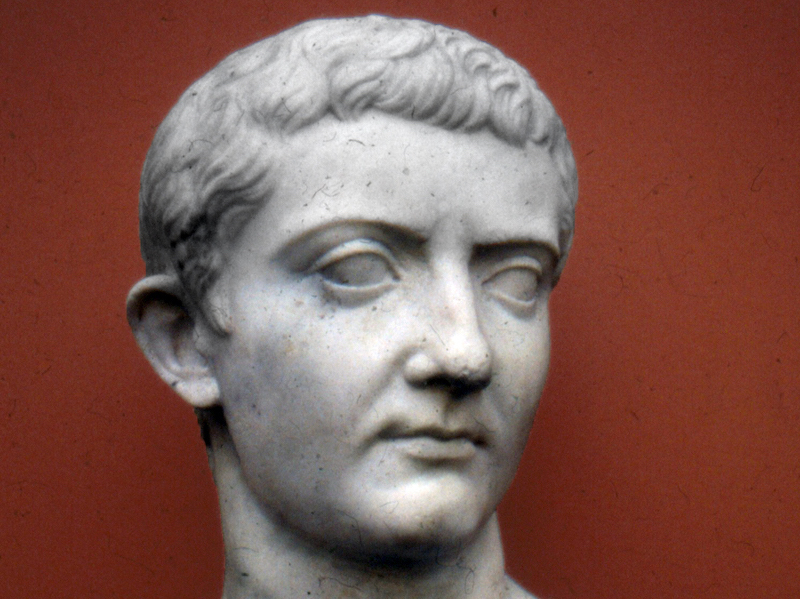Tiberius: The Beginning of Rome’s Plunge to the Depths of Madness
Episode #3 of the course The mad world of the Roman emperors by James Wareing
Today’s lesson introduces us to Tiberius. We shall see if he lived up to the reputation of his predecessor, Augustus, or would pave the way for a more tyrannical and brutal form of governing Rome.
Emperor Tiberius had a tough act to follow upon the death of Augustus in AD 14. His route to becoming Augustus’s successor was a circuitous one. His mother divorced his father to marry Augustus, and he was later adopted as Augustus’s son. In 11 BC, Augustus made Tiberius divorce his wife and marry his daughter, strengthening the ties between the two.
Military Success and Fiscal Prudence
Before he became emperor and during his reign, he was a very successful general, helping expand the Roman empire northward into Germany and returning lost Roman standards from Parthia, receiving military triumphs for his exploits. His expansion of the empire and strengthening of the eastern borders played a vital role in setting up the empire for continued success in the rest of the first century.
While his astuteness led to notable achievements on the battlefield, he lacked the charisma to translate himself into a popular leader. He was effective in reducing Rome’s spending and improving its financial situation but often appeared to be very aloof and became unpopular with the senate. He ironically tried to tackle corruption, according to Tacitus, by ordering tax collectors to “shear his sheep, not flay them,” cracking down on the abuses of his officials.
Tiberius the Tyrant
His reign became akin to that of a tyrant. He relied heavily on informers, creating an air of suspicion among the Roman people about whom they could trust and many fallacious charges that often resulted in death. Among the most frequent were newly established treason laws that made anything offensive or threatening said or done toward the emperor a crime.
As is the case with many tyrants, he was a man constantly fearful of those who might try to overthrow him. Political rivals were treated with unerring suspicion, resulting in a multitude of political purges and assassinations. Faced with a mutiny of soldiers, Tiberius sent out Germanicus to quell a potential uprising. While Germanicus was successful in doing so, Tiberius then saw Germanicus as a threat, so he was given the far-away eastern provinces to govern, effectively removing him as an immediate threat. Germanicus soon died there under suspicious circumstances, for which many alleged that Tiberius was responsible.
Constantly paranoid and looking over his shoulder, Tiberius appointed Sejanus as his right-hand man to be head of the Praetorian Guard (charged with protecting the emperor). Sejanus was a brutal man and abused his position of power to spread yet more terror among the Roman people, killing many more suspected political rivals. He dismissed senators as men “worthy of being slaves,” further fracturing his relationship with Rome’s elite. In the meantime, the unpopular Tiberius retreated to a self-imposed exile in Carpi, where Suetonius alleges that he spent his time engaging in all sorts of sexual promiscuities as he ran the empire from afar. Though away from Rome, his ruthless power was still limitless in its scope. Sejanus had been growing in audacity and was rumored to be preparing to seize control. Tiberius, on receipt of this news, ordered him to be killed, and his body was dumped in the river Tiber.
Tiberius’s Death
It was in Carpi that Tiberius was to die. He had declared Caligula his heir in his will, and when Tiberius became ill, Caligula began to ready himself to become emperor, scheming with the head of the Praetorian Guard, Marco. Tiberius, however, began to recover, and Marco, fearful of Tiberius’s reputation and anxious that his plotting may be discovered, ordered him to be smothered to death.
If the Roman people thought that Tiberius’s death would restore Rome to the relative sanity of Augustus, they were wrong, and tomorrow, we shall learn why when Caligula became emperor.
Learn Something New Every Day
Get smarter with 10-day courses delivered in easy-to-digest emails every morning. Join over 400,000 lifelong learners today!
Recommended book
Regarding Tiberius by Helena Mithridates Kleopatra
Share with friends

